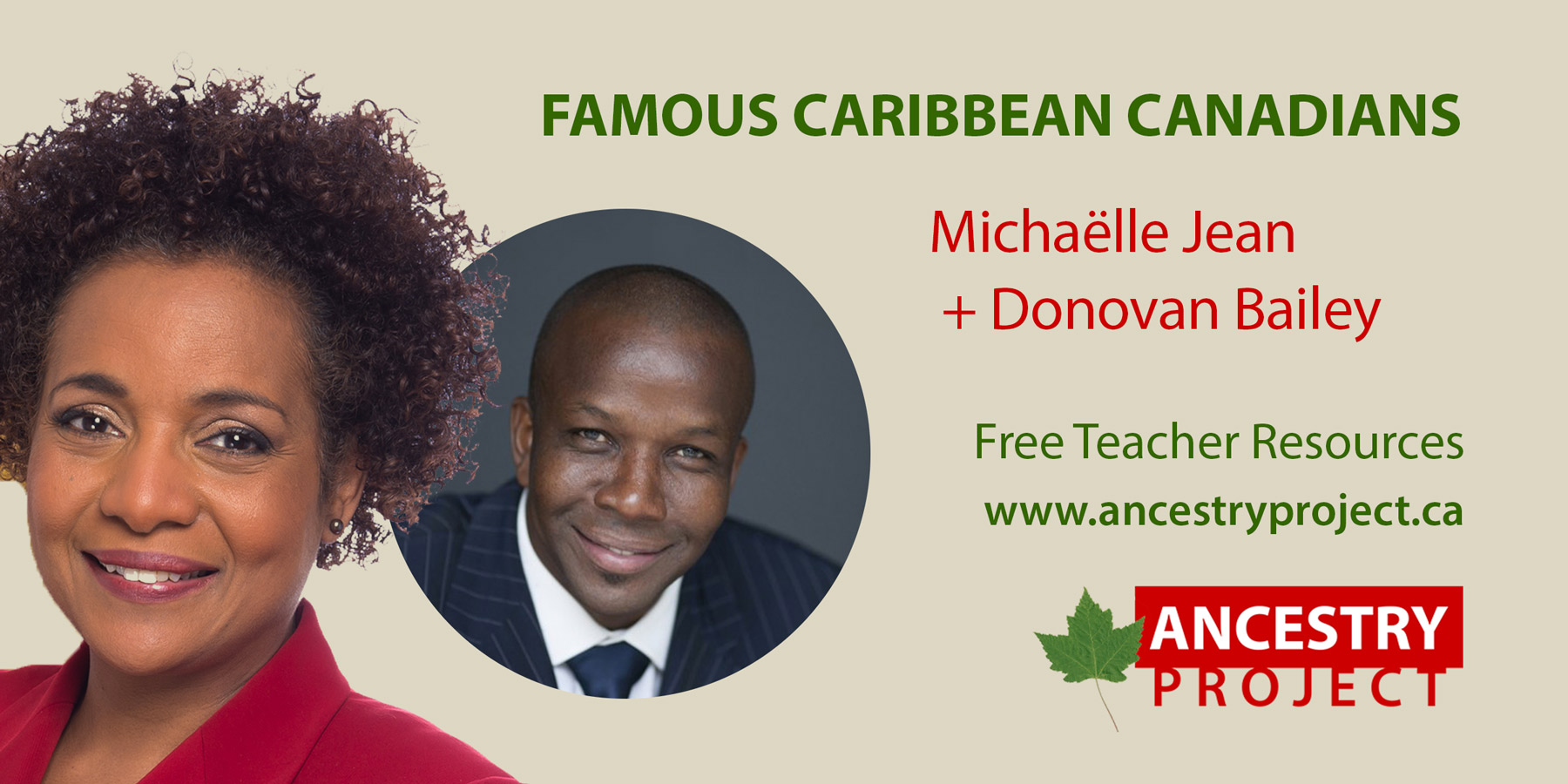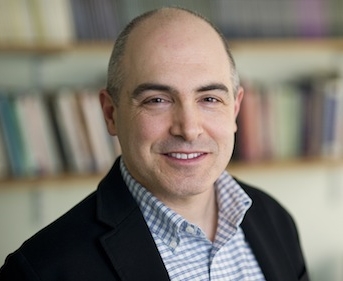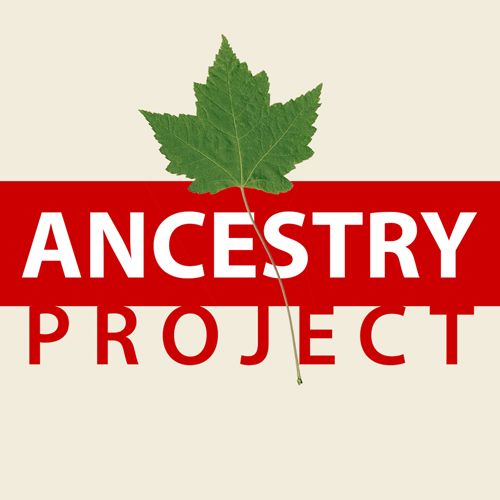Looking for Black History Month information and resources?
Visit our special Black History Month page today!

Famous Caribbean Canadians launches the week of Feb. 19
Ancestry Project Podcast and Media Study
Listen and Learn. Podcast for students and teachers.
About the Podcast Series
This podcast is for students and teachers, and is produced every two weeks. 20+ episodes are planned for 2018. Please subscribe the podcast email list. Teachers may register for free and paid materials.
Podcast #1: New Year’s Resolutions
By Mike Simpson, January 1, 2018
In this episode, Mike looks at New Year’s resolutions. As students listen, consider these questions: What are resolutions? Why do we make them? What does the author, David DeSteno, say about human emotion and how we might be able to bypass willpower and actually make good on our resolutions?
View article at New York Times
New Year's Resolutions

“What these findings show is that pride, gratitude and compassion… push us not only to cooperate with other people but also to help our own future selves.”
– David DeSteno
Transcript (click to view)
Introduction by host, Mike Simpson
Ancestry Project podcast and media study. January 1, 2018. You can listen to more podcasts at ancestryproject.ca/podcast.Happy New Year! And welcome to the podcast. I’m your host, Mike Simpson. I want to welcome you and tell you about today’s topic, New Year’s resolutions. Do you make resolutions? Have you ever made New Year’s resolutions? Did you keep your resolutions? Will you make new resolutions this year? What are they?
Excerpt from article
In the New York Times today I saw an interesting article. I’d like to share an excerpt with you: “The Only Way To Keep Your Resolutions,” by David DeSteno.
“New Year’s Eve is a time to set goals: to eat better, to save more money, to work harder, to drink less. It’s Day 1 on the road to a “new you.” But this road, as we all know, is difficult to follow. Humans are notoriously bad at resisting temptation, especially (as research confirms) if we’re busy, tired or stressed. By Jan. 8, some 25 percent of resolutions have fallen by the wayside. And by the time the year ends, fewer than 10 percent have been fully kept.
Unfortunately, the problem of New Year’s resolutions is, in a way, the problem of life itself. Our tendency to be shortsighted — to value the pleasures of the present more than the satisfactions of the future — comes at a considerable cost. Surely by now you’ve heard of the psychologist Walter Mischel’s famous marshmallow experiments, in which children who could resist the temptation to immediately eat one sweet would be rewarded with a second sweet about 15 minutes later. Professor Mischel found that those who could wait — those who had self-control — were also the ones who had better academic and professional success years later.
Since then, study after study has linked self-control to achievement in a wide range of areas, including personal finance, healthful eating and exercise, and job performance. Put simply, those who can persevere toward their long-term goals in the face of temptation to do otherwise — those who have “grit” — are best positioned for success.”
What these findings show is that pride, gratitude and compassion, whether we consciously realize it or not, reduce the human mind’s tendency to discount the value of the future. In so doing, they push us not only to cooperate with other people but also to help our own future selves.
Feeling pride or compassion has been shown to increase perseverance on difficult tasks by over 30 percent. Likewise, gratitude and compassion have been tied to better academic performance, a greater willingness to exercise and eat healthily, and lower levels of consumerism, impulsivity and tobacco and alcohol use.
If using willpower causes stress, using these emotions actually heals: They slow heart rate, lower blood pressure and reduce feelings of anxiety and depression. By making us value the future more, they ease the way to patience and perseverance.
Perhaps most important, while these emotions enhance self-control, they also combat another problem of modern life: loneliness.
So as 2018 commences, take more time to cultivate these emotions. Reflect on what you’re grateful to have been given. Allow your mind to step into the shoes of those in need and feel for them. Take pride in the small achievements on the path to your goals. Doing so will help ensure that every future New Year’s Eve will have more to celebrate than to regret.
Again that’s an article by David DeSteno, a professor at Northeastern University, who’s the author of the forthcoming book, “Emotional Success: The Power of Gratitude, Compassion and Pride.”
Let’s talk about your potential resolutions. Have you made a resolution to quit something – a vice? Have you made a resolution to improve yourself? Have you made a resolution to study more? Have you made a resolution to get the perfect job? Have you made a resolution to improve your social life? Have you made a resolution to make more friends? Have you made a resolution to improve your love life? Or be better to your family? Have you made a resolution to improve the way you eat?
On a personal level I rarely make resolutions. But this is a period of time to take stock, thinking about who you are – who I am, and what I want for the future. To think about where I’ve been and where I’m going.
I might take a course. I’m interested in self-improvement. I might quit a vice. I might cut down on something. I might try to do things better. I might stay up late less often, wake up early in the morning and do some reading. Or spend some time working on things that are meaningful to me.
We’re all very busy. I’m very busy. There are certainly many things I could change and many things I could do differently in the new year. What are you going to do differently in the new year? What resolutions have you made?
This has been the Ancestry Project podcast. I’m Mike Simpson. Happy New Year!
Downloads
The student PDF is available as a free download to everyone. The transcript PDF is available to registered users of Ancestry Project.
Student Handout
[download id=”26368″]
Teacher’s Transcript
[download id=”26373″]
MP3 of Podcast
[download id=”26379″]
Related Articles
‘Most of us are too busy to be better’: the lazy person’s guide to self-improvement
https://www.theguardian.com/lifeandstyle/2018/jan/06/too-busy-lazy-person-guide-self-improvement

Register today. Get free access to courses and teaching resources.